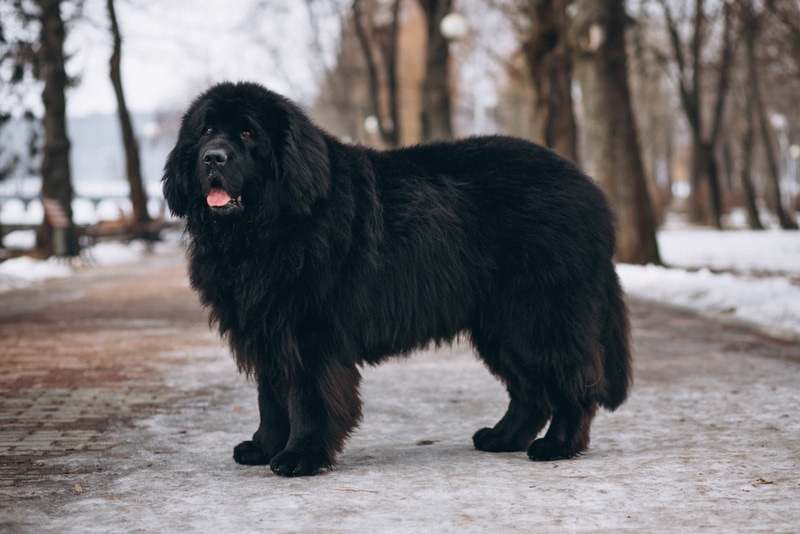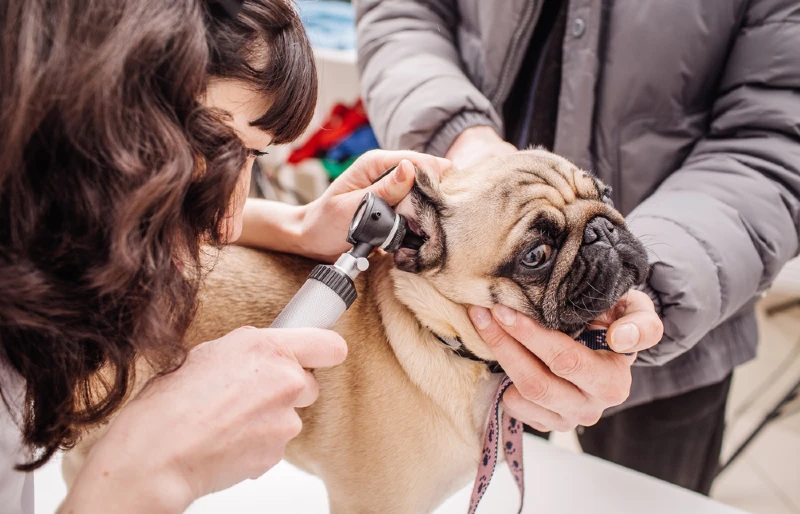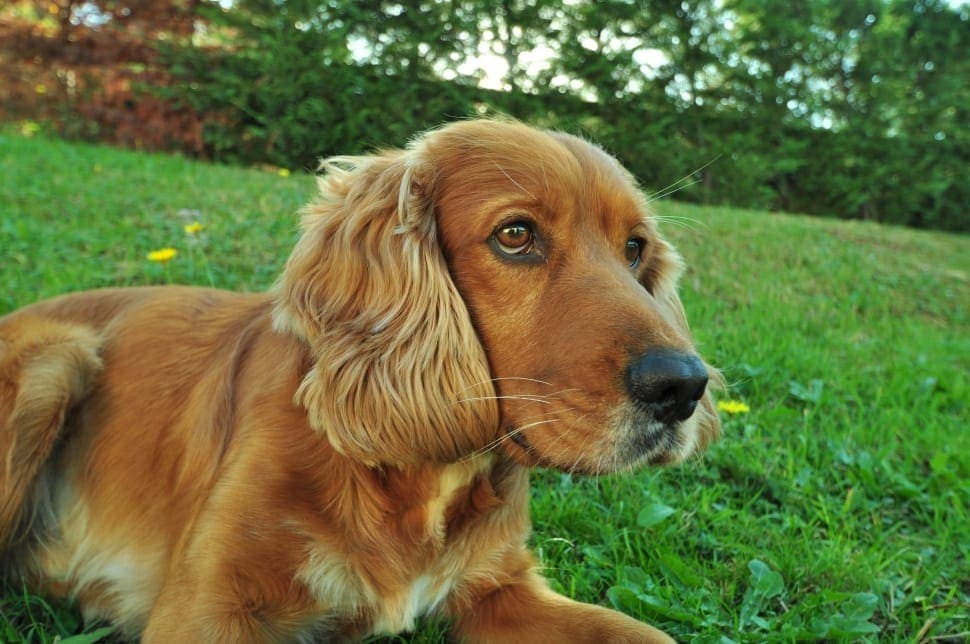Do Boxer Dogs Drool a Lot? Breed Facts & Care Tips

Updated on
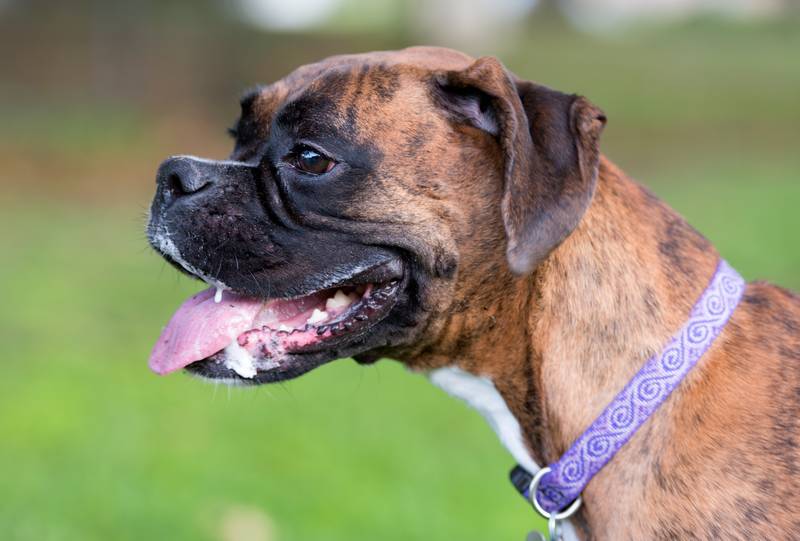
Click to Skip Ahead
We shouldn’t judge a book by its cover, and some believe the Boxer drools more than most breeds. However, that is a misconception. They might flick saliva at you after playing and can be messy with a water bowl. However, they’re nothing like the Saint Bernard or the Bloodhound. So, if you’ve noticed your Boxer drooling a lot, it could be a sign that something is wrong, like digestive troubles or a health problem.
Excessive Drooling and Your Boxer
It’s normal for your Boxer to drool a little or even a lot after exercise or when anticipating food. Saliva lubricates your dog’s mouth, prevents gum disease and tooth decay, and aids in breaking down food for digestion.
However, hypersalivation and excessive drooling, or ptyalism1, can cause inflammation and irritation around your dog’s lips and mouth. Many conditions can cause your dog to drool excessively, so let’s look into the most common ones.
Anxiety
If your Boxer has been known to be anxious in the past, you might have noticed them drooling. It could be from moving to a new home or in the car on the way to the vet. You might also notice other signs of anxiety, like panting, restlessness, and diarrhea.
Early socialization is essential for puppies, as it can promote confidence in your adult dog. If you are concerned that your dog is stressed, contact your vet or a behaviorist who can help.
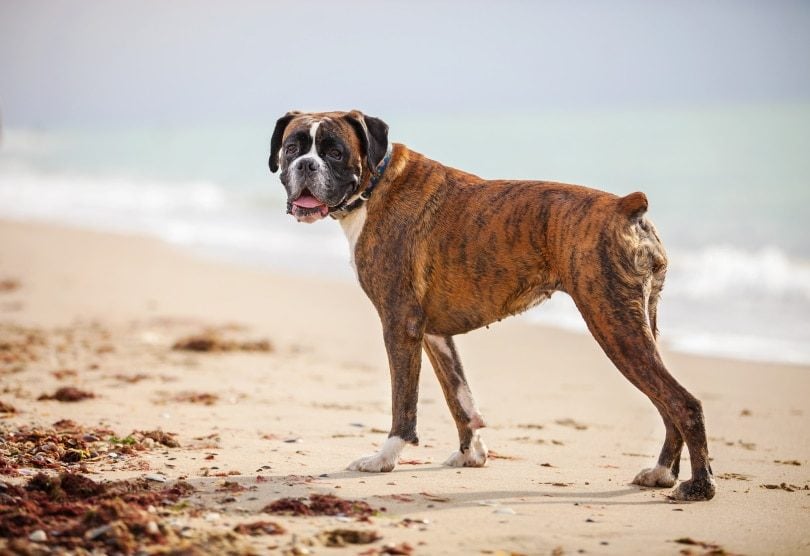
Mouth Problems
If an obstruction prevents your dog from swallowing, it will cause them to drool excessively. Tumors in the mouth, throat, or esophagus or a fractured tooth can cause excessive drooling. So, if you’re unsure of the cause, contact your vet for a better idea.
It’s essential to look after your dog’s teeth, as tartar buildup can cause excessive drooling. Brush your Boxer’s teeth daily, keep up to date with your annual veterinarian checkups, and introduce tooth brushing from an early age so it doesn’t stress out your adult dog. Contact your vet if there is any sign of a lump or foreign body.
Stomach Problems
Your Boxer might drool more if they suffer from inflammatory bowel disease, pancreatitis, or have a foreign body obstruction. If you notice your dog excessively drools in the car, which stops when the vehicle is stationary, they could be suffering from car sickness. Your vet can help you with nausea treatments if that is the case.
Additionally, if your dog likes to eat things they shouldn’t, they might have eaten a poisonous plant in the yard or while you were out for a walk.
Other Conditions
Conditions like heat stroke, liver disease, kidney disease, bloat, or even rabies can cause excessive drooling. It’s incredibly important to familiarize yourself with signs accompanying drooling that will prompt a vet visit.
Signs You Should Take Your Boxer to the Veterinarian
First, don’t wait for accompanying signs to appear before contacting your vet if you are already worried. If there isn’t a reason for the drooling, like you’re offering your Boxer a tasty treat, and the drooling is a new development, it’s perfectly natural for you to be concerned.
- Abdominal distension
- Bleeding
- Changes in behavior, like whining or aggressiveness
- Diarrhea
- Difficulty swallowing
- Head-tilting, dizziness, or any trouble with balance
- Lethargy or weakness
- Loss of appetite or changes to eating behavior
- Panting
- Pawing at their mouth
- Restlessness
- Uneven pupils
- Vomiting or regurgitation
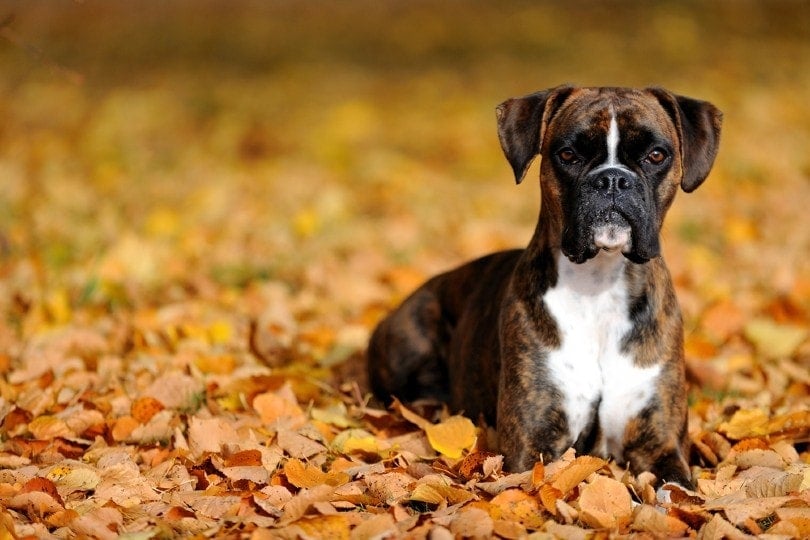
How Can Excessive Drooling Be Treated?
Your vet will determine what the underlying cause is behind the excessive drooling. From there, they can recommend the proper treatment.
- Anti-inflammatory and pain medications
- Chemotherapy, surgery, or radiation might be suggested for tumors
- Dental treatment if the problem is periodontal disease, and this might also require the removal of teeth
- Medicated mouthwash
- Medication, which might be antibiotics if the problem is bacterial
- Surgical intervention in some cases of congenital defects and trauma
Final Thoughts
Boxers don’t drool a lot. You might notice spit flying when they’re excited, but you shouldn’t expect a shoestring of spit dangling from their mouth. Excessive salivation can signify various problems, like anxiety, stomach problems, or tumors. This might feel like quite a varied combination of problems, but drooling can be one sign among others that will help you determine what is wrong with your dog. So, if excessive drooling is a new development, it’s wise to contact your vet to find out what is happening.
Featured Image Credit: Cari Rubin Photography, Shutterstock



